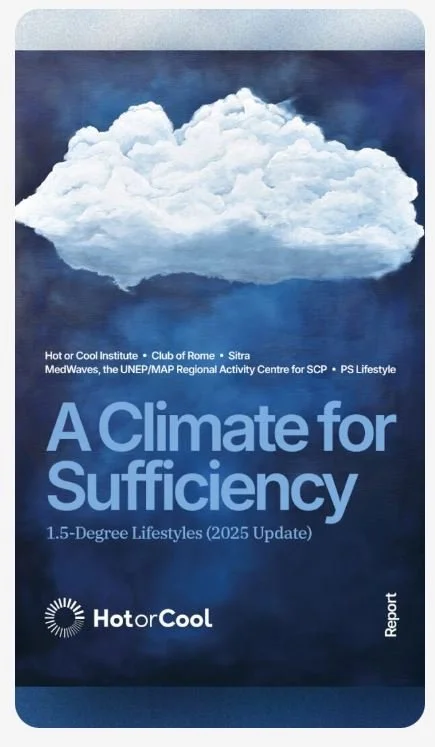Inequality drives climate crisis
New Hot or Cool report reveals emissions up to 17× above 1.5°C target
Berlin, 7 October 2025 —The Hot or Cool Institute, in collaboration with the PSLifestyle (PSL) project and international partners, has released the updated report A Climate for Sufficiency: 1.5-Degree Lifestyles (2025 update)Average lifestyle carbon footprints across 25 countries are now more than seven times higher than the level compatible with limiting global warming to 1.5°C,
The study finds that average lifestyle carbon footprints across 25 countries are now more than seven times higher than the level compatible with limiting global warming to 1.5°C. Achieving the 2035 climate goals will be impossible without addressing inequality and overconsumption.The study warns that achieving 2035 climate goals will be impossible without addressing inequality and overconsumption
High-income countries face the greatest challenge — their lifestyle emissions must fall by up to 94% within the next decade. The United States, Australia, and Canada top the ranking with footprints 17×, 12×, and 11× above the 1.5°C target, while lower-income nations are far closer to alignment.
The report highlights how the wealthiest 10% of the global population are responsible for around half of all lifestyle-related emissions, calling for globally coordinated wealth taxes, consumption caps, and sufficiency-based policies to curb overconsumption.
.
Slovenia: 7× Above the 1.5°C Target
Slovenia is among the 25 countries analysed in the report, included through its participation in the PSLifestyle (PSL) project, which promotes co-creation of low-carbon lifestyle pathways. The findings show that Slovenia’s average lifestyle carbon footprint is around seven times above the 1.5°C target.
As one of the PSL pilot countries, Slovenia contributes data and insights from the PSL online tool that tracks everyday consumption habits and encourages citizens to make sustainable lifestyle choices. The initiative supports behavioural change and collective action in line with the sufficiency principles emphasised throughout the report — meeting human needs without excess and shifting focus from material growth to wellbeing and equity.
The full report A Climate for Sufficiency: 1.5-Degree Lifestyles (2025 update) is available at www.hotorcool.org
““The climate and social crises are inseparable, with rising emissions and widening inequalities reinforcing one another,” Dr. Lewis Akenji, Executive Director of the Hot or Cool Institute.”

